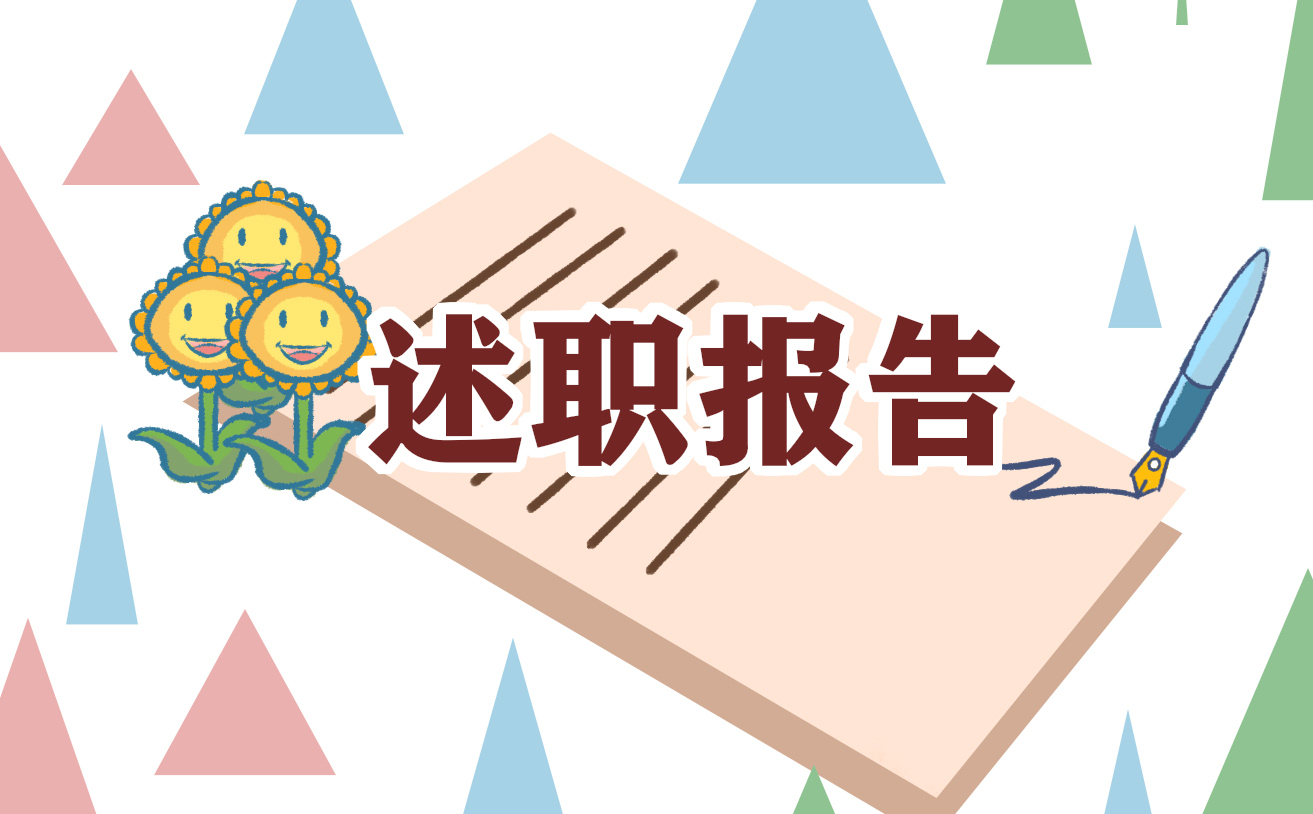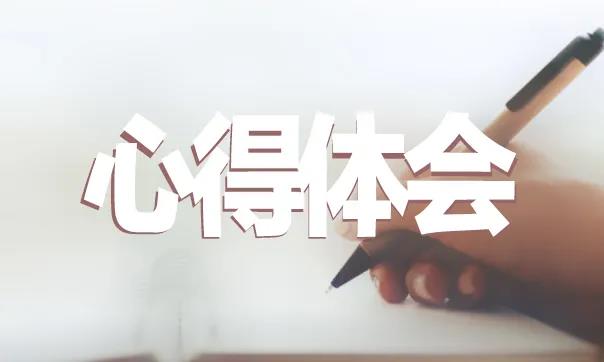《孟子两章》练习题阅读的答案1 孟子的思想: 得道多助,失道寡助 天时不如地利,地利不如人和。三里之城,七里之郭(),环()而攻之而不胜。夫环而攻之,必有得天时者矣,然而不胜者,是()天时不如下面是小编为大家整理的2023年《孟子两章》练习题阅读答案3篇,供大家参考。

《孟子两章》练习题阅读的答案1
孟子的思想:
得道多助,失道寡助
天时不如地利,地利不如人和。三里之城,七里之郭( ),环( )而攻之而不胜。夫环而攻之,必有得天时者矣,然而不胜者,是( )天时不如地利也。
城非不高也,池( )非不深也,兵革( )非不坚利也,米粟非不多( )也;委( )而去之,是地利不如人和也。故曰,域( )民不以( )封疆之界,固( )国不以山溪之险,威( )天下不以兵革之利。
得道者多助,失道者寡助。寡助之( )至( ),亲戚( )畔( )之;多助之至,天下顺( )之。以天下之所顺,攻亲戚之所畔;故君子有不战,战必胜矣。
一、 翻译句子:
1、 天时不如地利,地利不如人和。
2、 域民不以封疆之界,固国不以山溪之险,威天下不以兵革之利。
3、得道者多助,失道者寡助。
4、寡助之至,亲戚畔之;多助之至,天下顺之。
5、以天下之所顺,攻亲戚之所畔;故君子有不战,战必胜矣。
二、 课文分析:
1、中心论点:
2、“得道者”的意思是 ;文中与它意思相同的一个词是 。
3.用文中语句填空。
从上文看,得“人和”的实质是“ ”,得“人和”的最佳局面是“ ”。
7.回忆你学过的文言课文,从中举出一则可以证明本文论点的史实。
生于忧患 死于安乐
舜发( )于畎亩( )之中,傅说举( )于版筑之间,胶鬲举于鱼盐之中,管夷吾举于士,孙叔敖举于海,百里奚举于市。
故天将降大任( )于( )是( )人也,必先苦( )其心志,劳( )起筋骨,饿( )其体肤,空乏( )其身,行拂( )乱( )其所为,所以( )动( )心忍( )性,曾( )益其所不能。
翻译:故天将降大任于是人也,必先苦其心志,劳起筋骨,饿其体肤,空乏其身,行拂乱其所为,所以动心忍性,曾益其所不能。
人恒( )过( ),然( )后( )能改;困于心,衡( )于虑,而后作( );征于色,发于声,而后喻( )。入( )则无法家拂( )士,出( )则无敌国外患者,国恒亡,然后知生于忧患,而死于安乐也。
1、人恒过,然后能改;困于心,衡于虑,而后作;征于色,发于声,而后喻。
2、入则无法家拂士,出则无敌国外患者,国恒亡,然后知生于忧患,而死于安乐也。
课文分析:1、本文的中心论点是“ ”。
2、选文中孟子主要讲了两方面的问题,得出的结论是“生于忧患,死于安乐”,用现在的话说就是 。
3、凡是能担天下大任的人才,都必须经受一定的磨炼,这样才能取得“曾益其所不能”的效果或成就。任意举一个恰当的事例作论据。(所举事例必须包括人名、所受的磨炼、取得的成就)
4、本文指出,担当大任的人必须从三个方面经受艰苦磨难。其中,思想上要 ,行为上要 。生活上要 。
5、结合自己的实际,说说你对“生于忧患,死于安乐”的体会。(不超过20个字)(4分)
《孟子两章》练习题阅读的答案3篇扩展阅读
《孟子两章》练习题阅读的答案3篇(扩展1)
——《爱莲说》阅读练习题及答案3篇
《爱莲说》阅读练习题及答案1
水陆草木之花、可爱者甚蕃。晋陶渊明独爱菊。自李唐来,世人甚爱牡丹。予独爱莲之出淤泥而不染,濯清涟而不妖,中通外直,不蔓不枝,香远益清,亭亭净植,可远观而不可亵玩焉。
予谓菊,花之隐逸者也;牡丹,花之富贵者也;莲,花之君子者也。噫!菊之爱,陶后鲜有闻。莲之爱,同予者何人?牡丹之爱,宜乎众矣。
1.解释下面划线的词。(3分)
①可爱者甚蕃( )
②晋陶渊明独爱菊( )
③濯清涟而不妖( )
2.用现代汉语翻译下面的句子。(2分)
莲之爱,同予者何人?
3.荀子说“蓬生麻中,不扶而直;白沙在涅(黑泥),与之俱黑”,而周敦颐则说莲“出淤泥而不染”。围绕“环境与人”的关系,提炼出这两句话各自蕴含的观点(2分)
答案
1. ① 多 ②只 ③洗涤
2.对于莲花的喜爱,像我一样的还有什么人呢?
3.环境可以改变人;人可以不受环境的影响。
【解析】
1.试题分析:“蕃”:副词,多。“独”:一次多义,只。“濯”:动词,洗涤。
考点:本题考查学生对文言词语意义的理解。
点评:实词与虚词的积累,是培养阅读文言文能力的基础,理解文言文中词语的含义时,要联系原句来理解,不可孤立地理解单个字词的含义。另外,还要注意词语的特殊用法,比如古今异义词、动词的使动用法、通假字等,尽量做到翻译准确、恰当。
2.试题分析:翻译要注意把“同”(一样,相同)、“予”(我)、“何”(什么)这些字词翻译准确。
考点:本题考查学生对文言句子的翻译能力。
点评:句子翻译也是文言文阅读的一个常考题型,翻译句子时,要注意抓住句中的关键词句,把关键词句翻译准确,另外,还要注意对特殊句式的翻译,尽量做到通顺、流畅,表意清晰。
3.试题分析:“蓬生麻中,不扶而直;白沙在涅(黑泥),与之俱黑”的意思是蓬长在大ma田里,不用扶持,自然挺直,白色的细沙混在黑土中,也会跟他一起变黑。蓬生麻中,不扶自直,比喻生活在好的环境里,得到健康成长。白沙在涅,与之俱黑,比喻好的人或物处在污秽的环境里,也会随着污秽环境而变坏。总而言之,环境可以影响或改变人。“出淤泥而不染”的意思是生长在淤泥中,而不被淤泥所污染,也就是说热可以不受环境的影响。
考点:本题考查学生对句子含义的分析能力。
点评:怎样才能使思维直切要点,快速准确地分析其含义和作用呢?对于运用了修辞手法的句子含义的分析必须理清它所运用的修辞手法,根据所学修辞的知识,明确作者所要表达的意思,然后把所用修辞去除,用自己*实的语言把反话说正,委婉说直,比喻说清楚,象征说明白。意思隐晦难懂的句子,或深奥,或抽象,或省略,我们应该把深奥说浅显,抽象说具体,省略补完整。
《孟子两章》练习题阅读的答案3篇(扩展2)
——《秋天的怀念》阅读练习题及答案3篇
《秋天的怀念》阅读练习题及答案1
秋天的怀念
史铁生
①双腿瘫痪以后,我的脾气变得暴怒无常。望着望着天上北归的雁阵,我会突然把我面前的玻璃砸碎;听着听着李谷一甜美的歌声,我会猛地把手边的东西摔向四周的墙壁。母亲悄悄地躲出去,在我看不见的地方偷偷地听着我的动静。当一切恢复沉寂,她又悄悄地进来,眼边红红的,看着我。“听说北海的花都开了,我推着你去走走。”她总是这么说,母亲喜欢花,可自从我的腿瘫痪后,她侍弄的那些花都死了。“不,我不去!”我狠命地锤打这两条可怕的腿。喊着:“我活着有什么劲!”母亲扑过来抓住我的手,忍住哭声说:“咱娘儿俩在一块儿,好好儿活,好好儿活……”
②可我却一直都不知道,她的病已经到了那步田地,后来妹妹告诉我,她常常肝疼得整宿整宿翻来覆去睡不了觉。
③那天我又独自在屋里,看着窗外的树叶“唰唰啦啦”地飘落。母亲进来了,挡在窗前:“北海的菊花开了,我推着你去看看吧。”她憔悴的脸上现出央求般的神色。“什么时候?”“你要是愿意,就明天?”她说,我的回答已经让她喜出望外了。“好吧,就明天。”我说。她高兴得一会儿坐下,一会儿站起:“那就赶紧准备准备。”“哎呀,烦不烦?几步路,有什么好准备的!”她也笑了,坐在我身边,絮絮叨叨地说:“看完菊花,咱们就去‘仿膳’,你小时候就爱吃那儿的豌豆黄儿。还记得那回我带你去北海吗?你偏说那杨树花是毛毛虫,跑着,一脚踩一个……”她忽然不说了。对于“跑”和“踩”一类的字儿,她比我还敏感。她又悄悄地出去了。
④她出去了,就再也没回来。
⑤领导们把她抬上车时,她还在大口大口地吐着鲜血。我没想她已经病成那样,看着三轮车远去,也决没想到那竟是永远的诀别。
⑥邻居家的小伙子背着我去看她的时候,她正艰难地呼吸着,像她那一生艰难的生活。别人告诉我,她昏迷前的最后一句话是:“我那个有病的儿子和那个还未成年的女儿……”
⑦又是秋天,妹妹推我去北海看菊花。黄色的花淡雅,白色的花高洁,紫红色的花热烈而深沉,泼泼洒洒,秋风中正开得烂漫。我懂得母亲没有说完的.话。妹妹也懂。我俩在一块儿,要好好儿活……
“母亲进来了,挡在窗前”句中“是”写有意的动作还是无意的行为?请说明理由。(3分)
答:母亲这是有意的动作(1分),怕我看到落叶凋零的萧条景象,而触景伤情,产生伤感痛苦,甚至是绝望的心情,从而失去对生活的信心(1分),并且母亲希望我能正视自己,而不是逃避(1分)。
已悟透生活中的作者用“艰难”一词评价“母亲”的一生,你所理解的“母亲”的艰难表现在哪些方面?请结合全文概括归纳。(3分)
答:母亲身体不好,却不告诉我,我的心情不好,经常向母亲发脾气。
末段划线句子通过对菊花绚丽烂漫的描写来表达作者对秋天特有的情思,请用简洁的语言写出两点情思。(3分)
答:花代表美好的事物,希望他看花是为了转移他病痛中的痛苦,更是为了让他找到生活的勇气。母爱无私,母亲永远是在我们看不见的时候最爱我,父母对子女的爱永远只表露了三分,秋天的怀念并不是说故事发生在秋天,而是我对母亲的怀念和秋天这个季节有共通之处,都是代表了一种惋惜,代表了一种收获母爱,收获生存勇气的信念。
文章结尾说“我懂得母亲没有说完的话。”你认为文中的“我”懂了吗?请结合结尾段中的描写内容具体说明。(3分)
答:从结尾的描写内容看,“我”不仅懂了,而且已经像母亲期待的那样不再消沉了,和“妹妹”一起相互扶持着积极地去面对生活了。
《孟子两章》练习题阅读的答案3篇(扩展3)
——《老师的泪》阅读练习题及答案3篇
《老师的泪》阅读练习题及答案1
初二时,我竟莫名其妙地喜欢上了我的语文老师。
老师姓杨,爱穿白色的裙子,她在讲台上讲蓝蓝的天,青青的草,像一片白云飘来飘去,轻盈极了。
她有一双大而明亮的眼睛,笑时,便成了甜甜的弯月……
“齐玉。”杨老师叫我。
我发怔。
“为什么走神?”她停止讲课,走到我面前。
云飘到我眼前……可我仍愣愣的。“我,我喜欢看你的眼睛。”我说。同学们爆发出哄堂大笑。在笑声中,她的脸红红的,(a)美丽的眼中似乎还有泪水——她刚从师范大学毕业呢。
“你——你请出去。”
我懊丧地走出了教室。她从没发过火,这一次一定真生气了。
第二天,杨老师叫我们写周记。我花整整一个晚上,把心中的苦水倾倒出来:“美丽的妈妈死了,爸爸根本就不管我,整天就知道玩麻将、赌博,被*局抓走,判了三年徒刑。我冷了、饿了、怕了、病了,也没人知道。那时我常常一边哭,一边看妈妈的相片;可现在我长大了,是个男子汉,我不哭,把泪水咽在心里。我只有恨,恨我爸。我毕竟是个孩子,需要爱护,需要有人听听心里话。我选择了我的语文老师。因为,她像妈妈。”
不久后的一天,杨老师把我叫到她的宿舍,我诚惶诚恐地走进她的房间,只见她眼睛红红的。
“原谅老师,好吗?”
泪水涌出我的眼睛,尽情流淌。在同学面前,甚至在爸爸面前,我从不流泪,可在她面前我做不到。我哭了,尽情地哭了。
她等我哭完,便为我擦干泪水,轻轻地讲了一个姑娘的故事:
“一个小姑娘上中学时,父母在一次车祸中双亡,只剩下她孤苦伶仃一个人。当小姑娘绝望时,是她的老师收养了她,给她生活的勇气和无微不至的关怀。后来,小姑娘考上了师范大学,可老师不行了。弥留之际,小姑娘跪在老师的.床前,哭着说:‘妈妈,我还没报答您呀!’老师却含笑地说了一句:‘给你未来的学生吧……’”
(b)杨老师泪水盈盈。
我明白了:“杨老师,你也……”
她擦了擦眼泪,微笑着扶住我的双肩:“你是个男子汉,对吗?”
我呜咽着点点头。
“你恨爸爸,这不好。男子汉不这样,男子汉是笑着对待整个世界,真的。笑一笑,你笑一笑。”
我咧了咧嘴。
“我会帮助你的——像我的老师一样。”她眼中突然滚出了泪水,洒落在我的额头上。
“记住你是个男子汉,做个乐观正直的人!”
我狠狠地点点头。
在以后的日子里,我觉得我额上有着圣洁的印迹。我永远也忘不了。
《孟子两章》练习题阅读的答案3篇(扩展4)
——中考英语阅读理解专项练习题及答案3篇
中考英语阅读理解专项练习题及答案1
期盼儿子的电话
Mrs Green lives in a small village. Her husband is dead(死).But she has a son.He is twenty-one and his name is Jack.He gets work in a town and lives there.Its name is Greensea.It is quite a long way from his mother"s village,and she is not happy about this,but Jack says,"There isn"t any good work for me in the village,mother,and I can get a lot of money in Greensea and give you some every week.
One day Mrs Green is very angry. She gets on a train and goes to her son"s house in Greensea.Then she says to him,"Jack,why do you never give me a ring?
Jack laughs and says,"But,mother,you don"t have a telephone.
"No,she says,"I don"t have one, but you have one.
1.Where does Mrs Green live?
a.In a big city. b.In a small village.
c.In a town with his son. d.We don"t know.
2.How old is Mrs Green"s son?
a.Twelve. b.Twenty. c.Twenty-one. d.Thirty-one.
3.Which of these is not wrong?
a.Greensea is the name of a factory.
b.Jack works in a town and his mother is happy about this.
c.In the village there is no good work for Jack.
d.He can get less money in the town than in the village.
4.How does the woman go to Greensea one day?
a.On a bike. b.On foot. c.By train. d.By bus.
5.Why does Jack never telephone his mother?
a.Because he is too busy. b.Because he lives far from his mother"s village.
c.Because he doesn"t have a telephone. d.Because his mother has no telephone.
参考答案:1-5 BCCCD
中考英语阅读理解专项练习题及答案2
英国餐饮文化
English breakfast is a very big meal-eggs,tomatoes,tea,coffee....
For many people lunch is a quick meal.In cities there are a lot of sandwich bars,where office workers can buy the kind of bread they want- brown,white,or a roll(小圆面包)-and then all kinds of salad(色拉)and meat or fish to go in the sandwich.School children can have a hot meal at school.But many just take a sandwich,a drink and some fruit from home.
"Tea"means two things.It is a drink and a meal!Some people have afternoon tea,with sandwiches,cakes and a cup of tea.
They usually have the evening meal quite early,between 6:00 and 8:00,and often all the family eat together.
On Sundays many families have a traditional(传统的)lunch.They have chicken,pork...with potatoes,vegetables...
The Englishmen like food from other countries,too,especially(特别地)French,Chinese, Italian and Indian.People often get take-away food-they buy the food outside and then bring it home to eat.
根据短文内容及首字母提示在下列各句中的空处填入适当的词。
1.In England many people have a b________ breakfast and a q________ unch.
2.There are many sandwich bars in c________ and o________ w________ can buy sandwiches there.
3.In England"tea"can mean a d________ and a m________ .
4.Supper lasts(持续)about t________ h________ .
5.English people often buy t________ f________ .They buy some outside and bring it home.
参考答案:
1.big,quick
2.cities,office workers
3.drink,meal
4.two hours
5.take-away food
《孟子两章》练习题阅读的答案3篇(扩展5)
——初中英语阅读理解练习题和答案3篇
初中英语阅读理解练习题和答案1
When my family moved to America in 2010 from a small village in Guangdong, China, we brought not only our luggage, but also our village rules, customs and culture. One of the rules is that young people should always respect(尊敬) elders. Unluckily, this rule led to my very first embarrassment in the United States.
I had a part-time job as a waiter in a Chinese restaurant. One time, when I was serving food to a middle-aged couple, the wife asked me how the food could be served so quickly. I told her that I had made sure they got their food quickly because I always respect the elderly. As soon as I said that, her face showed great displeasure. My manager, who happened to hear what I said, took me aside and gave me a long lecture about how sensitive(敏感) Americans are and how they dislike the description “old”. I then walked back to the table and apologized to the wife. After the couple heard my reason, they understood that the problem was caused by cultural differences, so they laughed and were no longer angry.
In my village in China, people are proud of being old. Not so many people live to be seventy or eighty, and people who reach such an age have the most knowledge and experience. Young people always respect older people because they know they can learn from their rich experience.
However, in the United States, people think “growing old” is a problem since “old” shows that a person is going to retire or that the body is not working well. Here many people try to keep themselves away from growing old by doing exercises or jogging, and women put on makeup, hoping to look young. When I told the couple in the restaurant that I respect the elderly, they got angry because this caused them to feel they had failed to stay young. I had told them something they didn’t want to hear.
After that, I changed the way I had been with older people. It is not that I don’t respect them any more; I still respect them, but now I don’t show my feelings through words.
By Jack
根据以上短文内容,然后从每题所给的四个选项中选择最佳选项。
1. Jack brought the couple their food very fast because _______.
A. the manager asked him to do so B. he respected the elderly
C. the couple wanted him to do so D. he wanted more pay
2. When Jack called the couple “elderly”, they became _______.
A. nervous B. satisfied C. unhappy D. excited
3. In Jack’s hometown, _______.
A. people dislike being called “old”
B. people are proud of being old
C. many people reach the age of seventy or eighty
D. the elderly are the first to get food in restaurants
4. After this experience, Jack _______.
A. lost his job in the restaurant
B. made friends with the couple
C. no longer respected the elderly
D. changed his way with older people
5. Which of the following is TRUE?
A. The more Jack explained, the angrier the couple got.
B. Jack wanted to show his feelings through words after his experience.
C. The manager went back to the table and apologized to the couple.
D. From this experience, Jack learned more about American culture.
BCBDD
初中英语阅读理解练习题和答案2
Once Goethe, the great German poet, was walking in a park. He was thinking about something when he noticed he came to a very, very narrow road. Just at that time, a young man came towards him from the other end of the road. It was too narrow for both of them to pass through at the same time. They stopped and looked at each other for a while. Then the young man said rudely, “I never make way for a fool.” But Goethe smiled and said, “I always do.” Then he turned back quickly and walked towards the end of the road.
根据短文内容,回答问题。
1. Where was Goethe walking?
________________________________________________________________
2. Who came towards Goethe from the other end of the road?
________________________________________________________________
3. Was the road too narrow for both of them to pass through at the same time?
________________________________________________________________
4. Did the young man make way for Goethe?
________________________________________________________________
5. Who turned back quickly and walked towards the end of the road?
________________________________________________________________
初三英语阅读练习题答案:
1. In a park。 所问的问题是“歌德正走在什么地方?”根据Once Goethe, the great German poet, was walking in a park(有一次,德国大诗人歌德正在一个公园里散步)就能作出上述回答。
2. A young man。所问的问题是“谁从路的另一端向歌德走来?”根据Just at that time, a young man came towards him from the other end of the road(就在那个时候,一个年轻人从从路的另一端向他走来)就能作出上述回答。
3. Yes, it was。所问的问题是“这条路太窄两个人不能同时经过吗?”根据It was too narrow for both of them to pass through at the same time. (这条路太窄两个人不能同时经过)就能作出上述回答。
4. No, he didn’t。所问的问题是“那个年轻人给歌德让路了吗?”根据Then the young man said rudely, “I never make way for a fool.”(当时,那个年轻人粗暴地说:“我决不会给一个傻瓜让路)就能作出上述回答。
5. Goethe。所问的问题是“谁很快转身走回去?”根据Goethe smiled and said, “I always do.” Then he turned back quickly and walked towards the end of the road(歌德微笑着说:“我总是给傻瓜让路”,说吧,他很快转身走回去)就能作出上述回答。
《孟子两章》练习题阅读的答案3篇(扩展6)
——初二英语阅读练习题及答案3篇
初二英语阅读练习题及答案1
"Dreams (梦 ) may be more important than sleep. We all need to dream," some scientists say.
Dreams take up(占据) about one quarter of our sleeping time. People have several dreams each night. Dreams are like short films. They are usually in colour. Some dreams are like old films. They come to us over and over again. That may be because the dreamer is worrying about something. Dreaming may be a way of trying to find an answer.
Some people get new ideas about their work from dreams. They may(可能) have been thinking about their work all day. These thoughts can carry over(携入) into dreams.
Sometimes we wake up with a good feeling from a dream. But often we can"t remember the dream. Dreams can disappear (消失) quickly from memory (记忆).
Too much dreaming can be harmful (有害的). The more we sleep, the longer we dream. The mind is hard at work when we dream. That is why we may have a long sleep and still wake up tired.
1. It may be less important to sleep than to__.
A. think B. dream C. work D. study
2. Dreams and films are usually ____.
A. very long B. in colour
C. about work D. very sad
3. Why do some people often dream about their work?
A. Because they are tired in the daytime.
B. Because they are not interested in their work.
C. Because they may be thinking about their work all day.
D. Because they have too much work to do.
4. The main idea of the story is that ____.
A. what dream is
B. people like to sleep
C. dreams are like films
D. we always remember dreams
答案:1. B 2. B 3. C 4. A
初二英语阅读练习题及答案2
A young man asked Albert Einstein , the great German scientist , what the secret of success is. The scientist told him that the secret of success is hard work. A few days later the young man asked the same question again . Einstein was very annoyed . He did not say anything ,but wrote a few words on a piece of paper . On it was written: A=X+Y+Z.
“What does this mean ?” asked the young man .
“A means “ success”” explained the old scientist . “X stands for hard work ,Y for good method (方法) and Z Z means stop talking and get down to work.”
1. The young man _________.
A. wanted to meet Einstein
B. wanted to be a great scientist like Einstein
C. was eager (渴望) to know the secret of success
D. wanted to be a student of Einstein
2. In Einstein’s opinion the secret of success was ________.
A. to work with great energy (精力,活力)
B. to study hard day and night
C. to learn from great scientists
D. to raise (提出) questions as many as you could
3. “Y” stands for _______.
A. hard work B. great energy C. great success D. good manner(方法)
4. The word “annoyed” means ________.
A. angry B. sad C. lovely D. glad
5. Einstein was a man who ______
A. liked to talk with young people
B. liked to help others
C. liked to make friends with young people
D. liked to work , but didn’t like to talk
答案:CBDAD
《孟子两章》练习题阅读的答案3篇(扩展7)
——初二英语阅读理解练习题及答案3篇
初二英语阅读理解练习题及答案1
Have you ever asked yourself why children go to school? You may 1 they go to learn languages, P.E., history, science and all other 2 . But why do they learn these things?
We send our children to school to prepare them for the time 3 they will grow up and will begin to work for 4 . Nearly everything they study at school has some practical use in their life. But is that the 5 reason why they go to school?
There is more in education than just 6 facts. We go to school above all to learn how to learn, so that then we have left school we can 7 to learn. A man who really knows how to learn will always be successful, because whenever he has to do something new which he has never had to do 8 he will rapidly teach himself how to do it 9 the best way. The uneducated person, on the other hand, is 10 unable to do something new, or does it badly. The purpose of school, therefore, is not to teach languages, math, geography, etc, but to teach pupils the way to learn.
( ) 1. A. speak B. tell C. say D. talk
( ) 2. A. * B. subjects C. math D. physics
( ) 3. A. while B. when C. which D. where
( ) 4. A. oneself B. they C. them D. themselves
( ) 5. A. only B. nearly C . lone D. alone
( ) 6. A. study B. studied C. learning D. learn
( ) 7. A. make B. keep C. keep on D. go on
( ) 8. A. later B. ago C. then D. /
( ) 9. A. from B. in C. with D. on
( ) 10. A. either B. neither C. other D. nor
参考答案:1-5 CBBDA 6-10 CDDBA
初二英语阅读理解练习题及答案2
Have you ever asked yourself why children go to school? You may 1 they go to learn languages, P.E., history, science and all other 2 . But why do they learn these things?
We send our children to school to prepare them for the time 3 they will grow up and will begin to work for 4 . Nearly everything they study at school has some practical use in their life. But is that the 5 reason why they go to school?
There is more in education than just 6 facts. We go to school above all to learn how to learn, so that then we have left school we can 7 to learn. A man who really knows how to learn will always be successful, because whenever he has to do something new which he has never had to do 8 he will rapidly teach himself how to do it 9 the best way. The uneducated person, on the other hand, is 10 unable to do something new, or does it badly. The purpose of school, therefore, is not to teach languages, math, geography, etc, but to teach pupils the way to learn.
( ) 1. A. speak B. tell C. say D. talk
( ) 2. A. * B. subjects C. math D. physics
( ) 3. A. while B. when C. which D. where
( ) 4. A. oneself B. they C. them D. themselves
( ) 5. A. only B. nearly C . lone D. alone
( ) 6. A. study B. studied C. learning D. learn
( ) 7. A. make B. keep C. keep on D. go on
( ) 8. A. later B. ago C. then D. /
( ) 9. A. from B. in C. with D. on
( ) 10. A. either B. neither C. other D. nor
参考答案:1-5 CBBDA 6-10 CDDBA
初二英语阅读理解练习题及答案3
Mark lived in a village far away. One day he became very ill and everyone thought he would 1 soon. They sent for a doctor. Two days 2 the doctor came and looked over the sick man. 3 asked for a pen and some paper to write down the name of the medicine. But there was no pen 4 paper in the village, because no one could write.
The doctor 5 up a piece of burnt wood from the fire and wrote the name of the medicine on the 6 of the house. “ Get this medicine for him.” he said, “and he will soon get 7 .” Mark’s family and friends did not know 8 to do. They could not read the strange words. Then a young man 9 an idea. He took off the door of the house, put it on his carriage(马车) and drove to the nearest 10 . He bought the medicine there, and Mark was soon well again.
( )1.A. wake B.cry C.moved D.die
( )2.A. late B.later C.ago D.before
( )3A. The sick man B.Mark C.The doctor D.The farmer
( )4.A.and B.or C.then D.also
( )5.A.picked B.held C.made D.looked
( )6.A.wall B.window C.ground D.door
( )7.A.well B.worse C.bad D.good
( )8.A.when B.what C.where D.whick
( )9A.thought B.hit C.caught D.had
( )10. A.shop B.farm C.hospital D.village
参考答案:DBCBADABDC
《孟子两章》练习题阅读的答案3篇(扩展8)
——高考英语阅读理解专项练习题(带答案) (菁选3篇)
高考英语阅读理解专项练习题(带答案)1
Arriving in Sydney on his own from India, my husband, Rashid, stayed in a hotel for a short time while looking for a house for me and our children.
During the first week of his stay, he went out one day to do some shopping. He came back in the late afternoon to discover that his suitcase was gone. He was extremely worried as the suitcase had all his important papers, including his passport.
He reported the case to the police and then sat there,lost and lonely in a strange city, thinking of the terrible troubles of getting all the paperwork organized again from a distant country while trying to settle down in a new one.
Late in the evening, the phone rang. It was a stranger. He was trying to pronounce my husband"s name and was asking him a lot of questions. Then he said they had found a pile of papers in their trash can(垃圾桶) that had been left out on the footpath.
My husband rushed to their home to find a kind family holding all his papers and documents. Their young daughter had gone to the trash can and found a pile of unfamiliar papers. Her parents had carefully sorted them out, although they had found mainly foreign addresses on most of the documents. At last they had seen a halfwritten letter in the pile in which my husband had given his new telephone number to a friend.
That family not only restored the important documents to us that day but also restored our faith and trust in people. We still remember their kindness and often send a warm wish their way.
21. What did Rashid plan to do after his arrival in Sydney?
A. Go shopping. B. Find a house.
C. Join his family. D. Take a vacation.
22. The girl"s parents got Rashid"s phone number from________.
A. a friend of his family
B. a Sydney policeman
C. a letter in his papers
D. a stranger in Sydney
23. What does the underlined word “restored” in the last paragraph mean?
A. Showed. B. Sent out.
C. Delivered. D. Gave back.
24. Which of the following can be the best title for the text?
A. From India to Australia
B. Living in a new country
C. Turning trash to treasure
D. In search of new friends
【要点综述】 本文主要讲述了作者的丈夫来到了一个陌生的城市,一次出去购物回来之后,发现自己的手提箱不见了,里面有他所有的重要的文件,包括护照。就在他孤独无助的时候,一位陌生人打电话来告诉他,他的女儿捡到了文件。作者的丈夫丢失的东西失而复得,这也增加了他对人们的信任。
21. B 细节理解题。根据第一段中的“Arriving in Sydney on his own from India, my husband, Rashid, stayed in a hotel for a short time while looking for a house for me and our children.”可知,作者的丈夫只身从印度来到了悉尼,在旅馆里短暂停留,同时给作者和孩子们寻找房子住,因此选B。
22. C 细节理解题。 根据倒数第二段中的“At last they had seen a halfwritten letter in the pile in which my husband had given his new telephone number to a friend.”可知,这家人从作者的丈夫写给一位朋友的信中找到了作者丈夫的新电话号码,因此选C。
23. D 词义猜测题。根据“That family not only restored the important documents to us that day but also restored our faith and trust in people.”可知,那一家人不仅仅把这些重要的文件归还给了作者家人,而且还把对人的信任归还给了他们;而且根据倒数第二段第一句“My husband rushed to their home to find a kind family holding all his papers and documents.”可知restore表示“归还”。故C正确。
24. C 主旨大意题。本文讲述了作者的丈夫到了悉尼后,装有重要文件的手提箱被偷了。在他万般无奈的情况下,有人主动联系他,并归还了那些文件。那些重要的文件在别人看来并不重要,但是对于作者的丈夫来说却是万分重要。只有C项能够说明文章的中心思想。故C正确。
Travis is the manager of G&G where he is responsible for forty employees(雇员) and profits(利润) of over $2 million per year.He"s never late to
高考英语阅读理解专项练习题(带答案)2
work.He does not get upset on the job.When one of his employees started crying after a customer screamed at her,Travis took her away.“Your working uniform is your shelter,”he told her.“Nothing anyone says will ever hurt you.You will always be as strong as you want to be.”
Travis picked up that lecture in one of his G&G training courses,an education programme that began on his first day and continues throughout an employee"s occupation.The training has,Travis says,changed his life.G&G has taught him how to live,how to focus,how to get to work on time,and how to master his emotions(情绪).Most importantly,it taught him willpower.
At the centre of that education is an extreme focus on an allimportant habit:willpower.Dozens of cases show that willpower is the single most important habit for a person"s success.
And the best way to strengthen willpower is to make it into a habit.“Sometimes it looks like people with great selfcontrol aren"t working hard—but that"s because they"ve made it automatic,”Angela Duckworth,one of the University of Pennsylvania researchers said.“Their willpower occurs without them having to think about it.”
The company spent millions of dollars developing programmes of study to train employees on selfcontrol.Managers wrote workbooks that serve as guides to how to make willpower a habit in workers" lives.Those courses are,in part,why G&G has grown from a sleepy company into a large one with more than seventeen thousand stores and profits of more than $10 billion a year.
33.We learn from Paragraph 2 that employees in G&G must ________.
A.learn to give lectures
B.attend education programmes
C.design a working uniform
D.develop a common hobby
34.Willpower will become a habit when employees can ________.
A.focus on the profits
B.benefit from the job
C.protect themselves well
D.control their feelings well
35.What can we infer from the passage?
A.G&G has grown into a large company.
B.G&G will spend half its profits training employees.
C.G&G may become more successful in the future.
D.G&G has to produce more workbooks for managers.
【要点综述】 本文是一篇记叙文,主要介绍一家公司使willpower在员工生活中成为习惯,所以公司取得了巨大成功的故事。
33.B 细节理解题。根据第二段“…an education programme that began on his first day and continues throughout an employee"s occupation.”可判断员工从入职第一天开始直到整个职业生涯中,都必须接受教育培训。
34.D 推理判断题。根据倒数第二段中“‘Sometimes it looks like people with great…they"ve made it automatic,’…”可知答案。
35.C 推理判断题。根据文章最后一句可知,公司使willpower在员工生活中成为习惯,所以公司取得了巨大成功,以此类推,公司可能在将来更加成功。
高考英语阅读理解专项练习题(带答案)3
Larry was on another of his underwater expeditions(探险) but this time, it was different. He decided to take his daughter along with him. She was only ten years old. This would be her first trip with her father on what he had always been famous for.
Larry first began diving when he was his daughter"s age. Similarly, his father had taken him along on one of his expeditions. Since then, he had never looked back. Larry started out by renting diving suits from the small diving shop just along the shore. He had hated them. They were either too big or too small. Then, there was the instructor. He gave him a short lesson before allowing him into the water with his father. He had made an exception. Larry would never have been able to go down without at least five hours of theory and another similar number of hours on practical lessons with a guide. Children his age were not even allowed to dive.
After the first expedition, Larry"s later diving adventures only got better and better. There was never a dull moment. In his black and blue suit and with an oxygen tank fastened on his back, Larry dived from boats into the middle of the ocean. Dangerous areas did not prevent him from continuing his search. Sometimes, he was limited to a cage underwater but that did not bother him. At least, he was still able to take photographs of the underwater creatures.
Larry"s first expedition without his father was in the Cayman Islands.There were numerous diving spots in the area and Larry was determined to visit all of them.Fortunately for him, a man offered to take him around the different spots for free. Larry_did_not_even_know_what_the_time_was,_how_many_spots_he_dived_into_or_how_many_photographs_he_had_taken. The diving spots afforded such a wide array of fish and sea creatures that Larry saw more than thirty varieties of creatures.
Larry looked at his daughter.She looked as excited as he had been when he was her age.He hoped she would be able to continue the family tradition.Already, she looked like she was much braver than Larry had been then.This was the key to a successful underwater expedition.
56. In what way was this expedition different for Larry?
A. His daughter had grown up.
B. He had become a famous diver.
C. His father would dive with him.
D. His daughter would dive with him.
57. What can be inferred from Paragraph 2?
A. Larry had some privileges.
B. Larry liked the rented diving suits.
C. Divers had to buy diving equipment.
D. Tenyearold children were permitted to dive.
58. Why did Larry have to stay in a cage underwater sometimes?
A. To protect himself from danger.
B. To dive into the deep water.
C. To admire the underwater view.
D. To take photo more conveniently.
59. What can be learned from the underlined sentence?
A. Larry didn"t wear a watch.
B. Larry was not good at maths.
C. Larry had a poor memory.
D. Larry enjoyed the adventure.
60. What did Larry expect his daughter to do?
A. Become a successful diver.
B. Make a good diving guide.
C. Take a lot of photos underwater.
D. Have longer hours of training.
【要点综述】 本文是一篇记叙文,主要讲述了一位名叫Larry的海底探险家准备带他的女儿去海底探险以及他的海底探险经历。
56.D 细节理解题。根据第一段第二句“He decided to take his daughter along with him.”可知,这一次的不同之处在于他的女儿将与他一起潜水,故选D项。
57.A 推理判断题。根据第二段最后两句“Larry would never have been able to go down without at least five hours of theory and another similar number of hours on practical lessons with a guide. Children his age were not even been allowed to dive.”可知,潜水前有导师指导并训练他,在他那个年龄的孩子甚至不允许潜水,由此可推断,他有一些特权,故选A项,同时可知D项有误。根据第四、五句“…by renting diving suits from the small diving shop just along the shore. He had hated them.”可知B项有误。C项在本段找不到相关信息。
58. A 细节理解题。根据第三段第四、五句“Dangerous areas did not prevent him from continuing his research. Sometimes, he was limited to a cage underwater but that did not bother him.”可知,他待在笼子里应该是为了保护自己,故选A项。第三段最后一句只是对待在笼子里的补充,而不是其原因,故不能选C或D项。
59.D 句意理解题。根据画线句以及后一句“The diving spots afforded such a wide array of fish and sea creatures that Larry saw more than thirty varieties of creatures.”可知,Larry喜欢这些探险以至于忘却了时间,沉浸于其中。
60. A 细节理解题。根据本文最后一句“This was the key to a successful underwater expedition.”可知,Larry期望他的女儿成为一位成功的潜水员。
《孟子两章》练习题阅读的答案3篇(扩展9)
——高考英语阅读理解练习题及答案 (菁选2篇)
高考英语阅读理解练习题及答案1
O. Henry was a pen name used by an American writer of short stories. His real name was William Sydney Porter. He was born in North Carolina in 1862. As a young boy he lived an exciting life. He did not go to school for very long, but he managed to teach himself everything he needed to know. When he was about 20 years old, O. Henry went to Texas, where he tried different jobs. He first worked on a newspaper, and then had a job in a bank, when some money went missing from the bank O. Henry was believed to have stolen it. Because of that, he was sent to prison. During the three years in prison, he learned to write short stories. After he got out of prison, he went to New York and continued writing. He wrote mostly about New York and the life of the poor there. People liked his stories, because simple as the tales were, they would finish with a sudden change at the end, to the reader’s surprise.
1. In which order did O. Henry do the following things?
a. Lived in New York. b. Worked in a bank. c. Travelled to Texas.
d. Was put in prison. e. Had a newspaper Job. f. Learned to write stories.
A. e. c. f. b. d. a B. c. e. b. d. f. a C. e. b. d. c. a. f. D. c. b. e. d. a f.
2. People enjoyed reading O. Henry’s stories because
A. they had surprise endings B. they were easy to understand
C. they showed his love for the poor D. they were about New York City
3. O. Henry went to prison because .
A. people thought he had stolen money from the newspaper
B. he broke the law by not using his own name
C. he wanted to write stories about prisoners
D. people thought he had taken money that was not his
4. What do we know about O. Henry before he began writing?
A. He was well-educated. B. He was not serious about his work.
C. He was devoted to the poor. D. He was very good at learning.
5. Where did O. Henry get most material for his short stories?
A. His life inside the prison. B. The newspaper articles he wrote.
C. The city and people of New York. D. His exciting early life as a boy.
高考英语阅读理解练习题及答案2
One day a few years ago a very funny thing happened to a neighbour of mine. He is a teacher at one of London’s big medical schools, He had finished his teaching for the summer term and was at the airport on his way to Russia to give a lecture.
He had put a few clothes and his lecture notes in his shoulder bag, but he had put Rupert, the skeleton (人体骨骼) to be used in his lecture, in a large brown suitcase (箱子). At the airport desk, he suddenly thought that he had forgotten to buy a newspaper. He left his suitcase near the desk and went over to the shop.
When he got back he discovered that someone had taken his suitcase by mistake. He often wonders what they said when they got home and found Rupert.
1. Who wrote the story?
A. Rupert’s teacher. B. The neighbour’s teacher.
C. A medical school teacher. D. The teacher’s neighbour.
2. Why did the teacher put a skeleton in his suitcase?
A. He needed it for the summer term in London.
B. He needed it for the lecture he was going to give.
C. He wanted to take it to Russia for medical research.
D. He wanted to take it home as he had finished his teaching.
3. What happened at the airport?
A. The skeleton went missing . B. The skeleton was stolen .
C. The teacher forgot his suitcase. D. The teacher took the wrong suitcase .
4. Which of the following best tells the teacher’s feeling about the incident?
A. He is very angry . B. He thinks it rather funny .
C. He feels helpless without Rupert. D. He feels good without Rupert .
5. Which of the following might have happened afterwards?
A. The teacher got back the suitcase but not Rupert.
B. The teacher got back neither the suitcase nor Rupert.
C. The teacher got back Rupert but not the suitcase.
D. The teacher got back both the suitcase and Rupert.
《孟子两章》练习题阅读的答案3篇(扩展10)
——数学练习题以及答案
数学练习题以及答案1
环形跑道周长是500米,甲、乙两人从起点按顺时针方向同时出发。甲每分钟跑120米,乙每分钟跑100米,两人都是每跑200米停下来休息1分钟,那么甲第一次追上乙需要多少分钟?
解:
第一,甲乙出发后第一次停留在同一个地方。
那么就有当甲行200米之后,再出发的时间是200÷120+1>2分钟。
这时,乙用2分钟,也行了100×2=200米的地方。
意思是说,乙行了2分钟,就和在休息的甲在200米的地方停留。
第二,甲比乙多行500米而追上。
因为行完之后,甲比乙多行500米,
那么就说明多休息500÷200=2……100,即2次。
即甲追乙的路程是500+100×2=700米
要追700米,甲需要走700÷(120-100)=35分
甲行35分钟需要休息35×120÷200-1=20分
所以共需35+20=55分







